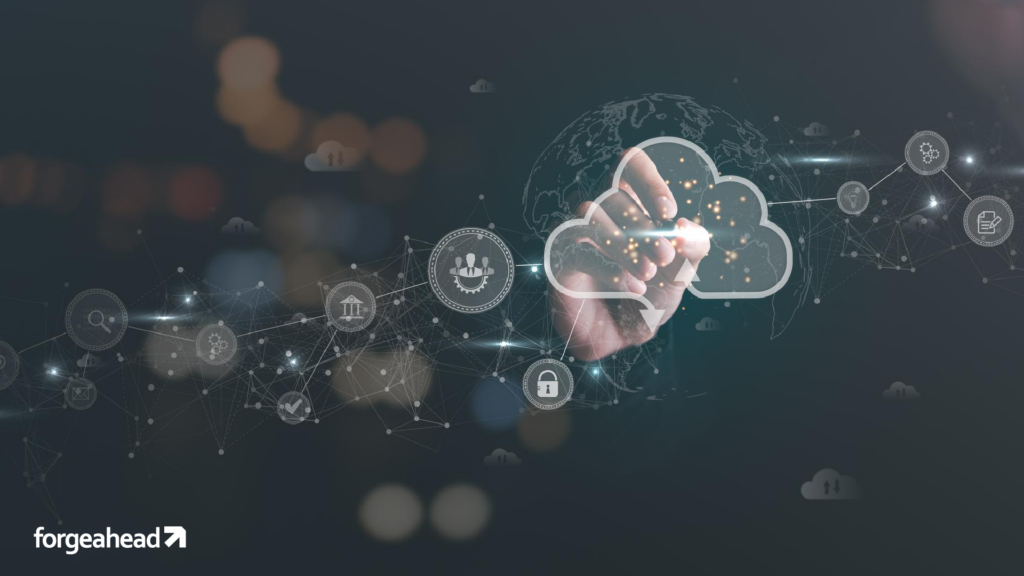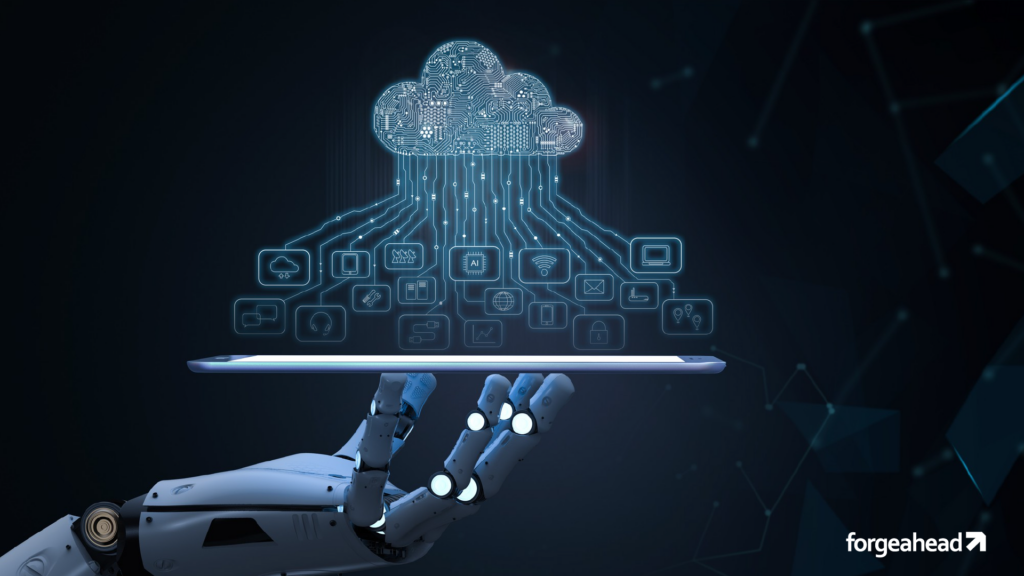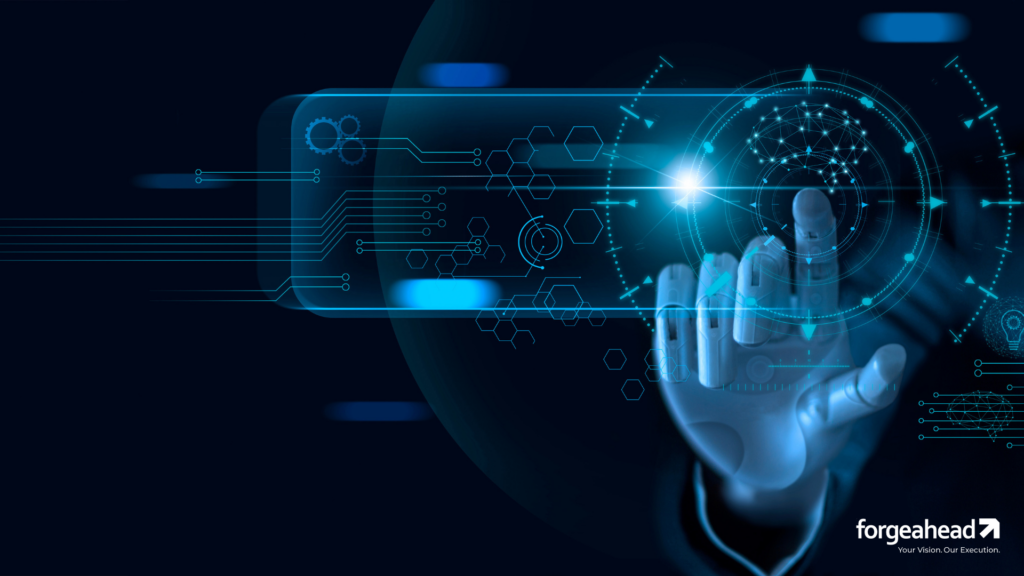Last updated on October 23rd, 2024
Your DevOps team has a smart assistant.
What can the assistant do?
They can automate tasks, predict issues, and accelerate software delivery.
AI-driven DevOps is making that a reality by transforming the way businesses approach software development.
With increasing demands for faster, high-quality releases, traditional DevOps practices are struggling to keep up. That’s where AI steps in—streamlining processes, reducing manual errors, and enabling teams to focus more on innovation.
Let’s explore how AI-driven DevOps is reshaping software delivery.
The Evolution of DevOps: From Traditional to AI-Driven
Traditional DevOps practices rely heavily on manual workflows, which can slow down development cycles and introduce errors.
As software demands grow, businesses face pressure to deliver faster while maintaining high standards.
- Traditional DevOps: Involves manual code testing, deployment, and incident response, leading to bottlenecks and human error.
- AI-Driven DevOps: Automates repetitive tasks, optimizes workflows, and uses machine learning to predict issues before they happen.
Traditional DevOps VS AI-Driven DevOps
| Aspect | Traditional DevOps | AI-Driven DevOps |
| Automation | Manual intervention required at various stages | Automates repetitive tasks, speeding up processes |
| Predictive Capabilities | Reactive approach to incident management | Uses machine learning to predict potential issues |
| Efficiency | Time-consuming, prone to bottlenecks and human error | Optimizes workflows, allowing teams to focus on strategic tasks |
| Code Testing & Deployment | Relies on manual testing and deployment processes | Automates code integration, testing, and deployment |
| Incident Response | Reactive, with slower resolution due to manual monitoring | Proactively detects and resolves issues using AI algorithms |
Does your current DevOps process involve too many manual tasks that slow down your software releases?
How AI is Transforming DevOps Automation
AI is changing DevOps by automating tasks that once required extensive human effort.

Here’s how it’s changing the game:
- Code Integration and Deployment: AI-driven tools automate code integration, testing, and deployment, significantly reducing the risk of errors. For example, AI can identify code conflicts during integration and suggest fixes in real-time, allowing for quicker resolutions.
- Intelligent Monitoring: AI-powered monitoring tools proactively detect issues by analyzing system logs and user behavior. When an anomaly is detected, the system can trigger alerts or even resolve issues without human intervention.
- Predictive Analysis: AI uses machine learning models to forecast potential system failures based on past data. This helps optimize system performance and prevent downtime.
“Netflix uses AI to predict potential service interruptions by continuously analyzing system logs, enabling faster incident resolution.”
Are you leveraging AI tools to detect and resolve issues before they impact your users?
Benefits of AI-Driven DevOps for Software Delivery
Incorporating AI into DevOps processes offers multiple benefits that streamline software delivery:

- Faster Development Cycles: By automating repetitive tasks, AI reduces manual effort, enabling quicker development and release cycles.
- Improved Code Quality: AI tools can identify vulnerabilities and bugs early in the development process, leading to higher code quality.
- Enhanced Collaboration: AI-driven DevOps breaks down silos by facilitating better communication and collaboration between development and operations teams.
- Proactive Issue Resolution: AI can detect patterns in system behavior to predict and resolve incidents before they escalate.
What benefits could your DevOps team experience by integrating AI into their workflows?
Comparing AI-driven DevOps Tools
| Tool | Key Features | Benefits |
| Jenkins | – Automates code integration, testing, and deployment- AI plugins for predicting build failures and suggesting fixes | – Speeds up release cycles by automating manual tasks- Reduces human errors during integration |
| Ansible | – Uses automation for configuration management and deployment- Supports infrastructure as code (IaC) | – Ensures consistent configuration across environments- Simplifies complex deployment workflows |
| GitLab | – Integrates AI-driven features for automated code reviews and vulnerability detection- CI/CD pipeline automation | – Improves code quality with automated reviews- Enhances security by identifying vulnerabilities |
| New Relic | – AI-driven monitoring and alerting for application performance- Analyzes logs and system metrics to predict issues | – Detects anomalies before they impact users- Provides actionable insights for incident resolution |
| Dynatrace | – Uses AI to automate monitoring, root cause analysis, and incident management- Provides end-to-end visibility across the software lifecycle | – Accelerates incident resolution with automated root cause analysis- Improves application performance |
| Splunk | – AI-enhanced log analysis and anomaly detection- Predicts potential outages using historical data patterns | – Proactively manages system health- Reduces downtime with predictive analytics |
Challenges in Implementing AI-Driven DevOps and How to Overcome Them
While AI-driven DevOps brings significant benefits, it also comes with challenges:
- Data Management: Handling large data volumes is essential for AI algorithms to deliver accurate results. Solution: Implement data governance practices to ensure data quality and consistency.
- Skill Gaps: Teams may need upskilling to effectively leverage AI-driven tools. Solution: Provide training sessions focused on AI integration in DevOps.
- Integration Issues: Integrating AI tools with existing infrastructure can be challenging. Solution: Start with a pilot project to identify potential integration hurdles and develop a step-by-step approach for full implementation.
Are your teams prepared to overcome the challenges of adopting AI in DevOps?
The Future of AI-Driven DevOps: What to Expect
The potential of AI-driven DevOps extends far beyond current capabilities:
- Emerging Trends: Look out for self-healing systems that automatically fix issues, AI-driven incident response, and intelligent resource management.
- Long-Term Impact: AI-driven DevOps will continue to transform software delivery, making processes more agile, scalable, and efficient.
Ending Thoughts
AI-driven DevOps is not just a trend—it’s reshaping how software is delivered by automating tasks, improving collaboration, and optimizing development cycles.
The benefits are clear: faster releases, better code quality, and more efficient incident management. If your business is looking to stay competitive in software delivery, now is the time to explore AI-driven DevOps.
Ready to transform your software delivery process? Contact Forgeahead for personalized strategies in adopting AI-driven DevOps.
FAQ Section
1. What is AI-driven DevOps?
AI-driven DevOps integrates AI to automate and optimize software delivery processes like testing, deployment, and monitoring.
2. How does AI enhance software delivery in DevOps?
AI automates tasks, predicts potential issues, and improves monitoring, leading to faster and more reliable software releases.
3. What are the benefits of automating DevOps processes with AI?
Benefits include reduced development time, improved code quality, and proactive issue resolution.
4. Which AI-powered DevOps tools should businesses use?
Tools like Jenkins, Ansible, and GitLab offer AI-driven features that enhance various stages of DevOps.
5. What challenges might arise when implementing AI-driven DevOps?
Challenges include data management, skill gaps, and integrating AI tools with existing infrastructure.



